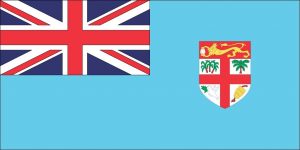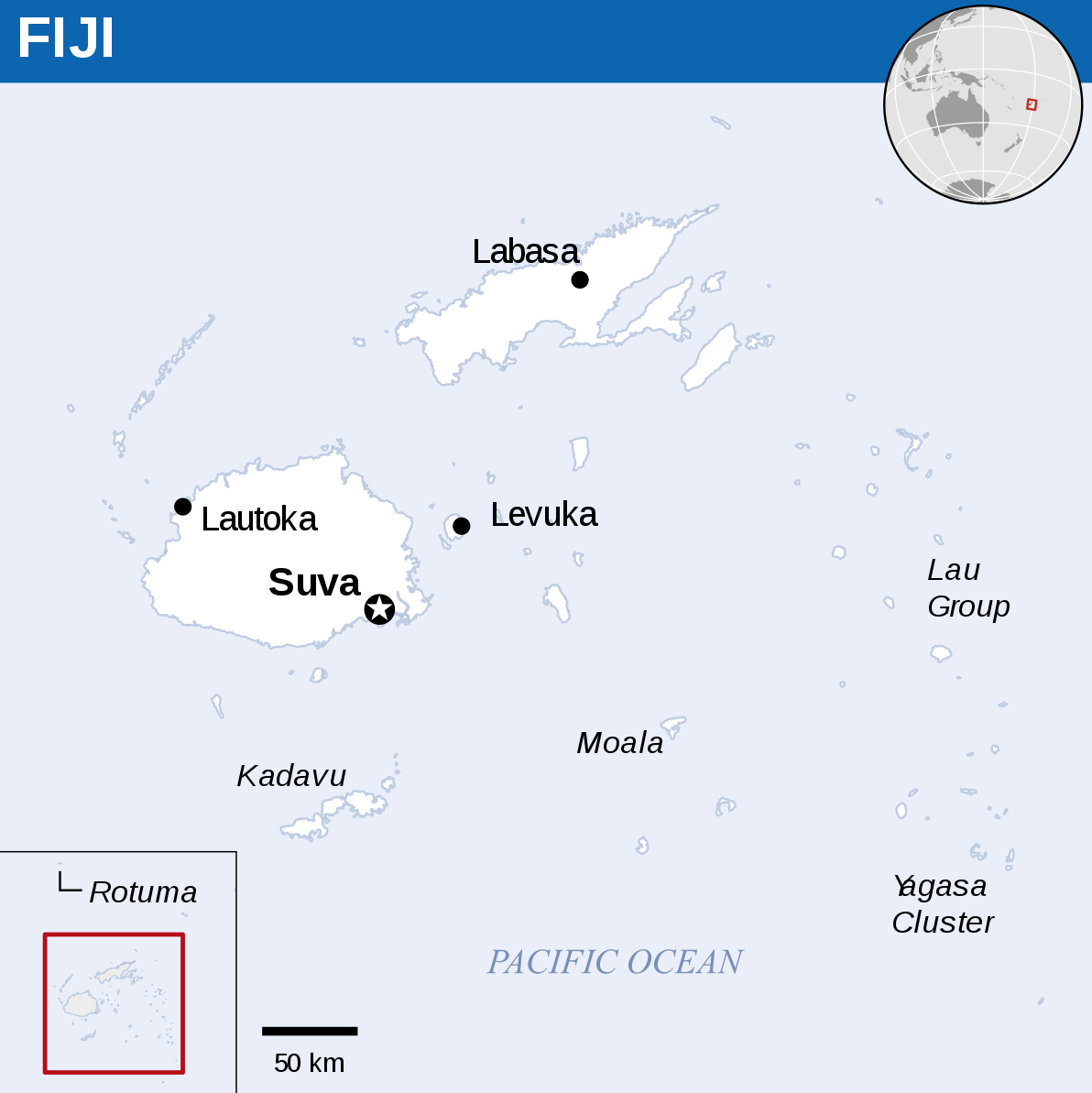
Fiji
International Disaster Response Law in the Pacific
Overview

Legal Preparedness for International Assistance Assessment
1. Does Fiji have a clear legal framework for disaster risk management which includes procedures relating to international disaster assistance?
The Natural Disaster Management Act (NDMA) 1998 and National Disaster Management Plan (NDMP) 1995 set out clear procedures relating to the request for international assistance.
Section 37(1) of the NDMA provides that the Chairman of the Council, after consultation with the Council, will advise Cabinet on the need to request international disaster assistance if it is established that the disaster is beyond national capacity to cope, or for any other reason they deem fit to do so. The NDMP states that international assistance will only be requested by the National Disaster Controller after an official appeal for international assistance is made and all requests will be based on identified needs by the National Disaster Controller or a recognised NGO.
The NDMP clarifies that an appeal for international assistance, either to specific countries or in general, is made by the Prime Minister upon advice from the National Disaster Controller and when the impacts of a disaster go beyond the capabilities of local and national resources to cope. All assistance is based on a request from the government of Fiji or from a recognised NGO and all requests are made by the National Disaster Controller through the Ministry of Foreign Affairs.
2. Do Fiji’s laws and regulations clearly set out a focal point for coordinating international disaster assistance?
Section 3 of the NDMP stipulates that the Ministry of Foreign Affairs is to control and maintain procedures on international assistance arrangements, provide liaison channel for all overseas involvement together with the Ministry of Finance and Department of Regional Development, and process through diplomatic channels, offers of requests for overseas disaster assistance in addition to maintaining a Guideline on International arrangements concerning International Disaster Assistance. Section 4 of the NDMP provides that for operational activities at the National level, during the emergency stage, all international assistance will be coordinated by the National Disaster Controller and requested by the Minister of Foreign Affairs.
Fiji’s National Emergency Operations Centre Standard Operating Procedures (SOPs) 2010 states that the National Disaster Controller is to manage the acquisition and distribution of international assistance provided towards the response to an emergency situation. In order to facilitate cooperation between the international community and the Government of Fiji, the National Disaster Controller will assign one of their staff as the point of contact for international agencies. This person will assist in the coordination of international assistance and provide information to the international community as required.
3. Do Fiji’s laws and regulations outline the roles and responsibilities of different institutions relating to international disaster assistance?
Both the NDMA and the NDMP canvas the roles and responsibilities of domestic actors involved in international disaster assistance, ranging from the Prime Minister, to government departments, civil servants and local NGOs, but particularly focussed on the NDMO as the focal point for disasters and the NDMC at the strategic governance level for disasters. For example, the NDMA states that the National Disaster Controller shall provide a briefing to donors who respond to a request for international assistance for disaster rehabilitation. The NDMP also provides for the Fiji Red Cross Society to seek assistance from the International Federation of Red Cross and Red Crescent Societies for international relief when required in accordance with the Red Cross Movement Fundamental Principles.
There are no apparent responsibilities imposed upon assisting international actors, however, section 5 of the NDM Plan states that un-itemised and unsolicited relief items should not be accepted, other than by the National Disaster Controller.
4. Do Fiji’s laws and regulations outline a process for requesting/ welcoming offers of international disaster assistance, and for terminating international assistance?
A natural disaster may be declared by Cabinet on the advice of the Council and must be announced publicly. In addition to section 37(1) mentioned above, the NDMA specifies that the National Disaster Controller may request the Minister of Foreign Affairs to call for foreign assistance in an emergency situation and the Controller and the Emergency Committee will coordinate all foreign assistance provided as a result. In addition, NGO’s may request international assistance from their respective international organisations.
There are a number of references throughout the NDMP to the end of the “emergency phase” and the beginning of international relief for rehabilitation, however there is no definition as to how long the emergency phase lasts for and or how the beginning of the relief phase begins. There are no apparent procedures for terminating international assistance. There are provisions for the declaration of natural disaster which remains in force for a period not exceeding 30 days if it is not revoked sooner by public broadcast on television and radio and published in the Gazette.
Un-itemised and unsolicited relief supplies are discouraged and will not be accepted without the approval of the National Controller.
5. Do Fiji’s laws and regulations provide for necessary legal facilities to be provided to international assisting actors?
Fiji’s disaster regulatory frameworks provide for general wavier of customs and excise duties on official disaster relief goods, as contained in the NDMP and the Fiji Customs Tariff Act (Revised) 2010, however there appears to be no laws or regulations providing legal facilities to international assisting actors.
6. Do Fiji’s laws and regulations set out quality standards for international assisting actors?
It appears that the considerations for international assistance, including the oversight of international actors when they arrive in country and the standard and quality of their relief goods and equipment are not present in current regulatory frameworks.
7. Do Fiji’s laws and regulations set out eligibility requirements for international assisting actors to receive legal facilities?
In addition to above, there appears to be no provisions in Fiji’s current laws and policies outlining processes whereby international actors may receive legal facilities, processes such as the verification of medical certificates or licences, or evidence of official registration with recognised organisations, or basic background, identity and competency checks.
8. Do Fiji’s laws and regulations establish a specialised unit for expediting the entry of international disaster assistance?
The NDMA creates a degree of confusion as to who is responsible for ensuring efficient entry of international disaster assistance. It states that the National Disaster Co-Ordinator is charged with “managing the acquisition and distribution of international assistance provided in response to an emergency situation”. However, the it also states that the National Disaster Controller and the Emergency Committee are responsible for co-ordinating all foreign assistance. Under the NDMP the Department of Customs and Excise are required to: “Facilitate entry of all official disaster assistance commodities and waive customs and excise duties, where appropriate.” The National Humanitarian Policy for Disaster Risk Management 2017 outlines a number of actions around developing national guidelines for coordination of international humanitarian assistance at all levels including identifying the Fiji Cluster system as the Government-led humanitarian coordination mechanism in Fiji.
However, beyond these general requirements, there appear to be no further specific processes to ensure the efficient entry of international assistance. In addition, there appears to be no specialised unit formally tasked with expediting international assistance.
9. Do Fiji’s laws and regulations provide adequate transparency, safeguards and accountability mechanisms governing international disaster relief and initial recovery assistance?
Under the NDMA, the responsible Ministry must ensure it sets money aside from within its annual budget to finance disaster management, including preparedness, prevention, mitigation, emergency response, rehabilitation, long-term recovery and related activities. Cabinet must be informed of the status of these budget allocations. The NDMP also provides that all goods donated by other governments or donor agencies will first go to the Controller of Government Supplies (COGS) where an inventory and proper records will be maintained. Distribution of those goods will be conducted under the purview of the National Disaster Controller. Aside from the aforementioned provisions, there are no specific laws or regulations providing for transparency and accountability mechanisms in relation to international disaster relief.
10. Do Fiji’s laws and regulations outline procedures for international disaster assistance sent from and transiting through Fiji?
Fiji’s laws and regulations do not currently outline procedures for situations where Fiji would be used as a transit for the shipment of international disaster relief, although given the ongoing review of the current Disaster Act, this is an issue that may be addressed.
Laws, policies, plans and other resources
-
Natural Disaster Management Plan 1995
-
National Emergency Operations Centre Standard Operating Procedures 2010
-
National Progress report on the implementation of the Hyogo Framework for Action 2013–2015
-
National Tsunami Response Plan 2017
-
Natural Disaster Risk Reduction Policy 2018–2030
-
National Humanitarian Policy for Disaster Management 2017
![]()

